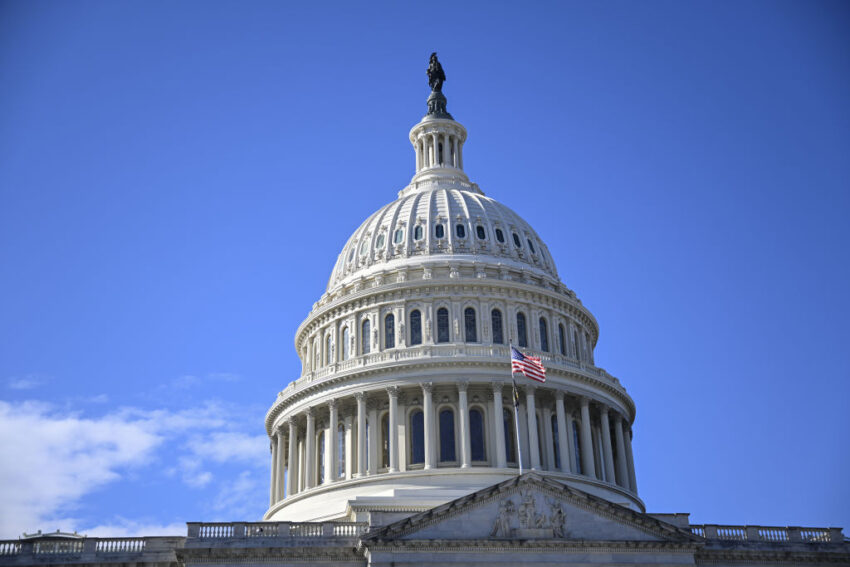And an executive from North Carolina’s Charlotte Pipe and Foundry points to potential legislative fixes.
Last week, before a U.S. House of Representatives Judiciary subcommittee hearing, a witness representing a North Carolina-based foundry recounted its history of successfully argued trade enforcement anti-dumping/countervailing duty (AD/CVD) petitions that were undermined by transshipment – the practice of obscuring a product’s country of origin to avoid paying duties in its destination market.
“In the seven years since our orders were issued, we have received 10 positive … determinations of transshipping against producers of our products, primarily in Malaysia and Cambodia,” said Charlotte Pipe and Foundry Company Vice President Bradford Muller. “When Customs investigated the locations of these alleged producers, they found an empty warehouse, a bus stop, even a massage parlor, but no foundries.
“These entities have no intention of ever paying the duties,” Muller went on. “When caught transshipping, these companies simply dissolve and the bad actors reconstitute under a new shell company and resume their unlawful activity.”
The subcommittee hearing’s purpose was to explore the concept of foreign “lawfare” in the U.S. legal system, which another witness defined as “the systematic use of judicial proceedings to accomplish strategic, (military) or political goals” by “manipulating legal processes to undermine, discredit, or impose substantial financial burdens on adversaries through judicial mechanisms.” By that definition, Muller’s complaint is right at home. The unfairly traded items Charlotte was going after – primarily cast iron and plastic pipe fittings for plumbing – were not made in Cambodia or Malaysia but China. And it’s been a problem for years; one of the underlying reasons that lawmakers are trying to make U.S. AD/CVD laws more nimble and the prosecution of trade crime more of a priority.
Transshipment was among the subject of a New York Times article detailing a spike in trade crime that has occurred amid the array of tariffs the Trump administration has announced in recent months:
“We can avoid high duties from China, which we have already done many in the past,” read one email to a U.S. importer.
“Beat U.S. Tariffs,” a second read, promising to cap the tariffs “at a flat 10%.” It added: “You ship worry free.”
“Good News! The tariffs has been dropped finally!” another proclaimed.
… The Chinese firms advertising these services describe their methods as valid solutions. For a fee, they find ways to bring products to the United States with much lower tariffs. But experts say these practices are methods of customs fraud. The companies may be dodging tariffs by altering the information about the shipments that is given to the U.S. government to qualify for a lower tariff rate. Or they may move the goods to another country that is subject to a lower tariff before shipping them to the United States, a technique known as transshipment.
It’s being reported that cracking down on transshipment is being included in the myriad trade negotiations the Trump administration is pursuing with foreign governments. We’re still waiting for more fulsome details but it appears to be in the agreements made with Vietnam and Indonesia.
But there are legislative proposals to improve our own enforcement tools too. The Leveling the Playing Field Act 2.0 would create allow for successive AD/CVD investigations so it will be easier to bring such cases (and level such duties) when repeat offenders pull stakes and try to move operations to another country. Another, which Muller highlighted in his testimony, would enhance AD/CVD penalties suspend offenders proven to have committed fraud the legal ability to work as an importer for a number of years.
And then there’s another he brought up – the Protecting American Industry and Labor from International Trade Crimes Act of 2025 – that would involve the U.S. Department of Justice (DOJ) in the enforcement against trade-related crimes. It would establish a task force or similar structure within the DOJ’s Criminal Division to investigate and prosecute trade-related crimes; Enhance nationwide responses to trade-related offenses by providing training and technical assistance to other federal, state, and local law enforcement agencies, expanding investigations and prosecutions, and allowing for parallel criminal and civil enforcement actions; and requires the Attorney General to submit an annual report to Congress assessing the DOJ’s efforts, statistics on trade-related crimes, and fund utilization.
This is a proposal the Alliance for American Manufacturing has backed; and we were happy to hear it raised in the subcommittee hearing. You can read more about the Trade Crimes Act here and watch the full hearing at the video below.
Click this link for the original source of this article.
Author: Matthew McMullan
This content is courtesy of, and owned and copyrighted by, https://www.americanmanufacturing.org and its author. This content is made available by use of the public RSS feed offered by the host site and is used for educational purposes only. If you are the author or represent the host site and would like this content removed now and in the future, please contact USSANews.com using the email address in the Contact page found in the website menu.








